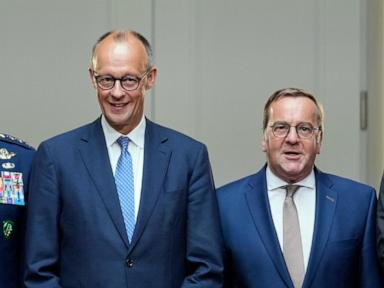Germany Launches Recruitment Drive to Strengthen Military Forces

Germany’s leadership has initiated a campaign to boost voluntary military recruitment, aiming to enhance the nation’s armed forces in response to increasing concerns about potential Russian aggression. On Wednesday, German officials outlined their strategy to attract more individuals to serve in the military, marking a significant step as the country seeks to modernize its defense capabilities without reinstating conscription, which was suspended in 2011.
Germany has faced challenges in maintaining adequate military personnel levels, with approximately 181,000 active service members reported at the end of last year. The government aims to increase this number to 260,000 active soldiers, alongside a reserve force of 200,000. Defense Minister Boris Pistorius emphasized the urgency of this initiative, stating, “The Bundeswehr must grow — the international security situation, above all Russia’s aggressive behavior, make this necessary.”
Recruitment Strategy Aims for Flexibility and Appeal
The new recruitment plan approved by Chancellor Friedrich Merz‘s Cabinet focuses on providing attractive pay and improved conditions for those willing to serve. This includes options for short-term commitments, with additional incentives for individuals who enlist for a minimum of six months. The government intends to survey young people turning 18 about their willingness to serve starting in 2024, with mandatory medical examinations for young men set to begin in mid-2027.
The proposal has been met with mixed reactions within the governing coalition. While some members support the plan as a necessary first step, others express concerns that it may not suffice to meet recruitment goals. Bavarian governor Markus Söder has publicly stated that simply making the military more appealing may not be enough, suggesting that compulsory service may ultimately be needed. “Some say Putin could be in a position to challenge NATO in 2027, others in 2029 — why wait if we already know today at least that the danger is there?” Söder remarked.
Legislative Approval and Future Considerations
The recruitment initiative is pending parliamentary approval, having been discussed at a Cabinet meeting held at the Defense Ministry—an unusual occurrence in recent years. Prior to the Cabinet’s decision, NATO’s supreme commander in Europe, General Alexus Grynkewich, provided insights on the current security landscape, emphasizing the need for enhanced military readiness.
Pistorius has indicated that while the current conditions do not support a return to conscription, the government will remain vigilant and adapt the strategy if recruitment targets are not met over the next few years. Merz reiterated his confidence in achieving the necessary figures without reinstating mandatory service, stating, “I am confident, at least from today’s point of view, that in any case to begin with we will reach the figures we need.”
The ongoing discussions reflect a broader concern within Germany about national security and military preparedness. As Europe grapples with evolving threats, the effectiveness of this recruitment drive will be closely monitored, marking a pivotal moment in the country’s defense policy.






